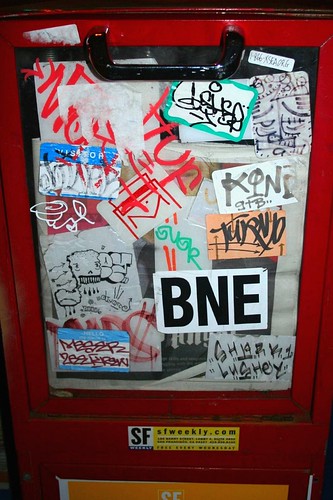At the 80th Annual Convention of the Southern States Communication Association, I am contributing the panel discussion “Social Media and Public Relations: Twittering and Beyond.” Below, you will see the brief Prezi I created to frame my comments about how Twitter has helped to make me a better public relations professor.
How Twitter Makes Me a Better PR Professor on Prezi
Notes
UPDATE from April 14: My notes for the presentation appear below.
Collaborate {with Peers}
I simply can’t recall what it was like starting out as a new PR professor 20+ years ago at McNeese State University, not having the ability to bounce ideas off of other PR professors around the world in mere moments. Now not a day goes by that I don’t collaborate with professors on syllabi, assignments and more. Some of those whom I stay in touch with most often include:
- Auburn University’s Robert French (founder of PR OpenMic)
- St. Edward’s Univerity Corinne Weisgerber (with whom I collaborated using a wiki to develop a new Social Media for PR class)
- University of Georgia’s Karen Russell
- University of Oregon’s Kelly Matthews & Tiffany Gallicano
- Marquette University’s Gee Ekchai
- and many more
Converge {with PR Pros}
Part of my role as a PR educator is to prepare students for the “real” world of public relations. By weaving in ideas from successful PR practitioners into my classes, I am making sure I am teaching my students things that will help them in their entry-level roles. I am often surprised and delighted by seeing my students reaching out directly to PR pros on their own, too. For example, Mackenzie Stratton did her Social Media for PR podcast by interviewing Socialnomics author Erik Qualman over Skype. Other PR pros who are especially helpful to students are
Connect {with Students}
My students have learned that the quickest way to get an answer from me is to tweet (either through an @ or DM). If I notice that several students are asking me similar questions, I’ll respond with a tweet to their class, using the class’ designated hashtag. Sometimes, however, I do have to let my students know that even though I may be using Twitter late into the evenings, I am “off the clock” and will get back to them later.
{peek into the back} Channel
I love seeing my students help each other out by answering each other’s questions on Twitter.
{Keeps Me} Current
Though I have considered myself a news junkie for years, I tend to learn about breaking news (especially in the world of PR/social media) via Twitter. I frequently weave today’s current events into the classes I teach, and it’s much easier for me to get my news now.
I also discussed some of the social media fiascoes that have occurred (including Disgusting Domino’s Employees, #PepsiFail and Motrin Moms) and the Mumbai crisis.
Communicate {Concisely}
Since Twitter only allows 140 characters to share our messages, I have had to work on being less wordy. I find that when I plan mini-lectures in my classes, I design several “tweetable” segments, in case my students happen to be tweeting in class.
After our panel discussion was over, the real conversation in the room began. Our audience asked lots of great questions, including those around the blurring of personal and professional parts of our lives. I shared that in my first-year experience class (Making Connections: Facebook & Beyond), one of the assignments is for students to create their own Social Media Policies, clearly defining how and why they use different types of social media.







